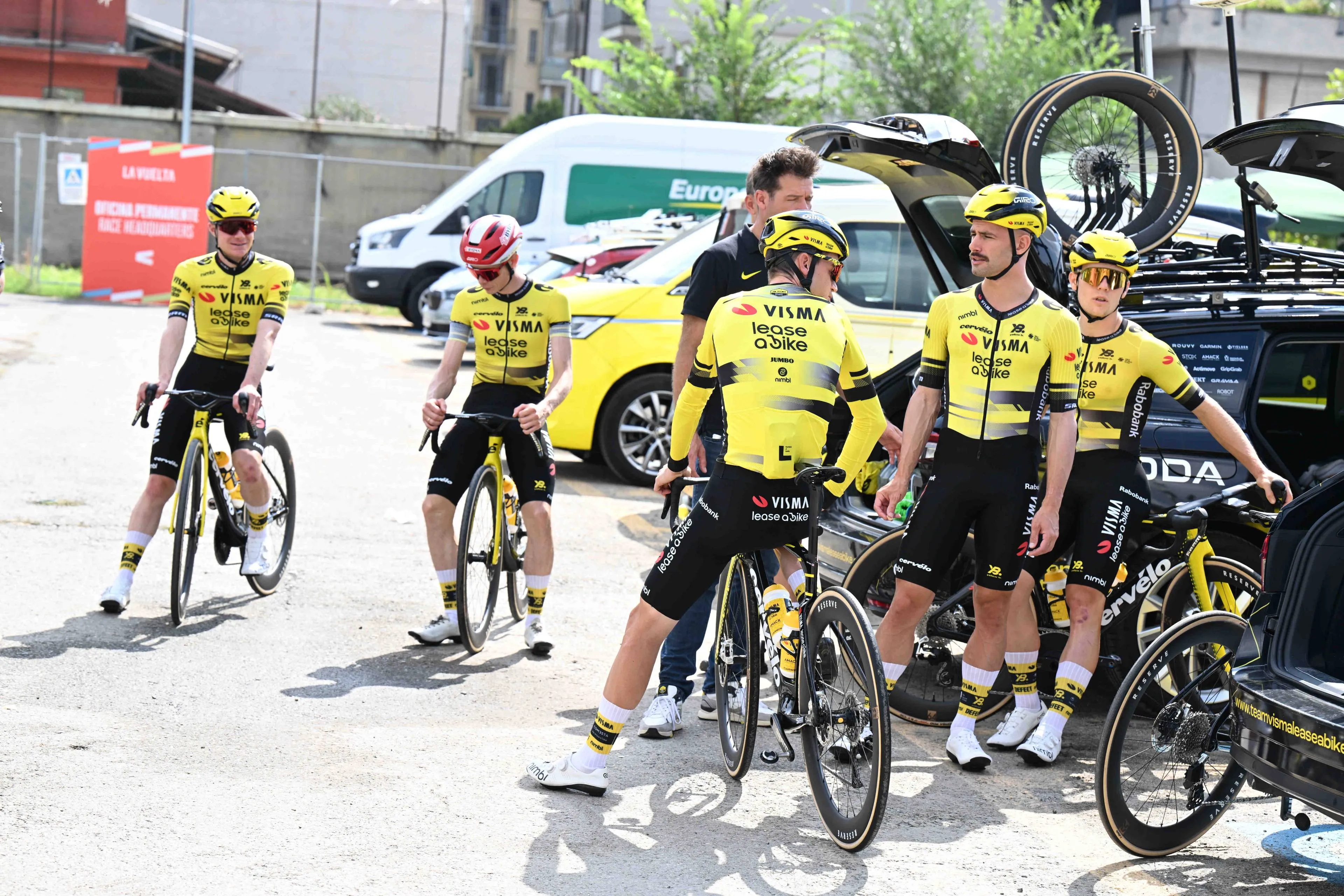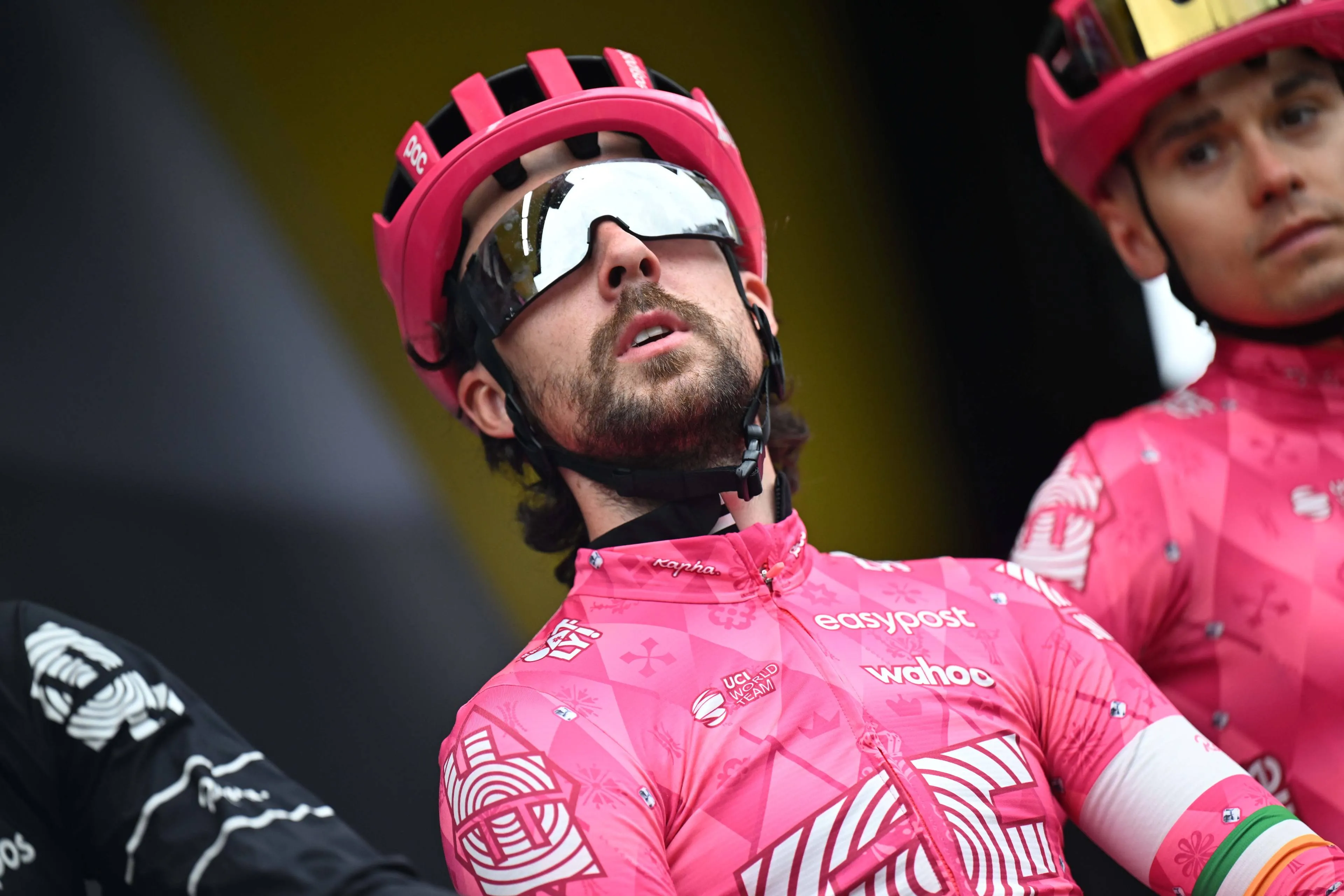French actor Marc Fayet weighs in carbon monoxide controversy - but what does Bernard Sainz have to do with it?
CyclingSaturday, 30 November 2024 at 23:00

One of the most controversial topics of the 2024 cycling
season was riders’ use of carbon monoxide to boost their performance. Riders like Tadej Pogacar and Jonas Vingegaard confirmed they had used it, but is it legal?
Yes, for now, but is it moral? That’s what many cycling fans are less sure
about, and rightfully so given the sports troubled past with those bending and
outright breaking the laws.
In his column for Cyclism'Actu, actor and cycling enthusiast
Marc Fayet spoke of the ethical concerns surrounding the use of carbon monoxide
and other substances in cycling. He recounts a recent encounter in Paris with a
man he believed to be Bernard Sainz, also known as "Dr. Mabuse," a man
infamous for his involvement in doping scandals. This sighting led Fayet to
reflect on the persistent issues of doping and the moral ambiguities in the
sport.
Read also
Fayet notes that, especially in November, cyclists are in a
period of reflection and preparation for the upcoming season. He suggests that
during this time, some may be tempted to seek illegal methods to enhance
performances for the following season. He states, "Yet at a time when rumours
about carbon monoxide machines, ketones, and other microdoses are current, the
prescriptions of the dubious doctor, like the one I thought I recognized, seem
to be outdated."
Who was Bernard Sainz?
Though not a licensed medical professional, Sainz became known
as ‘Dr. Mabuse’ for providing cyclists with unregulated substances and
alternative remedies allegedly aimed at enhancing performance.
Read also
His methods often violated legal boundaries, and over the
years Sainz faced numerous investigations and legal troubles, including a 2018
conviction for doping-related offenses. Many cycling fans will shudder at the
mention of his name, as he reminds them of Michele Ferrari, the infamous
Italian doctor who led Lance Armstrong’s EPO campaign in the sport. Like Sainz, Ferrari
was investigated for his offences, and was found guilty of sporting fraud back
in 2004.
claps 0visitors 0
Just in
Popular news
Latest comments
- For a chance to shake his hand or get a selfie i'd wait half a day!!slappers6612-02-2026
- For a chance to shake his hand or get a selfie i'd wait half a day!!slappers6612-02-2026
- As far as I'm convinced, Remco still has "zero" wins. I invite Remco to stop in Siena to meet his Slovenian master, Pogi the G.O.A.T... but no, it's better to run away and hide. His fans will somehow defend and glorify him. Let me repeat, he still has zero wins in 2026. If someone doesn't have a high enough IQ to understand what I'm talking about, it's because they don't recognize the low ranking F category races. If Remco will beat Del Toro and Adam Yates in the UAE Tour, then I will consider this to be his first win in 2026. Ad acta.Mou-Cro-HR12-02-2026
- I think this is his fifth interview where he's saying "Good Riddance" to Remco (unless it's the same repeated interview) but he certainly will get a big shock when a) he finds himself to be Soudal-Quick Step's best climber but failing and b) when the French dump all the pressure of being the next Tour winner on his shoulders, which will sag
 Rafionain-Glas12-02-2026
Rafionain-Glas12-02-2026 - another reason to love MVDP. he didn't make the easy switch, he didn't join a super team already. he did the hard work to make a team a super team.mij12-02-2026
- Pogi is the final bossZamorano12-02-2026
- Well he’s a bit of a primadonna. Comes from his soccer/football roots, so carefully creating his schedule to yield the best exposure is going to be paramount.Pedalmasher12-02-2026
- El Toro Loco appears to have the temperament and ability one of a couple who i respect in UAE..Davide11-02-2026
- Evenepoel and co. have put one set of UAE riders to the sword. If they can do the same to this group the final test is the man at the top- Pogacar!velodan11-02-2026
- Give it a rest. Remco has over 30 wins at WT, WC or Olympics level, including over time a few serious whuppings of Pogi. Everyone knows that Pogi is the GOAT. But that hardly means that top 10 riders like Jonas, Remco, MvdP, Almeida, Mads etc. are nobodiesmobk11-02-2026
Loading
Write a comment









